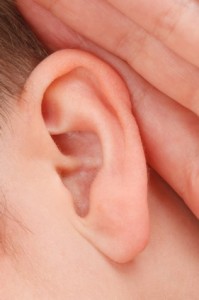I’ve got good news and bad news about occupational hearing loss.
First the bad news about occupational hearing loss claims:
 It can be hard to prove that the hearing loss was caused by a work accident or by an incident of loud noise at work as opposed to hearing loss from aging, particularly if there is no baseline audiogram when the employee begins the job,
It can be hard to prove that the hearing loss was caused by a work accident or by an incident of loud noise at work as opposed to hearing loss from aging, particularly if there is no baseline audiogram when the employee begins the job,- Insurers fight these claims because hearing aids are expensive and need frequent replacement,
- Claims for hearing loss that comes on gradually over time from noise exposure at work are often denied if the employee writes a date of onset more than 90 days before a C-4 claim form is completed. The insurer may argue that the claim should have been filed sooner.
- Insurers change the rules as to how to compare hearing loss from one year to the next,
- An employee can have a significant hearing loss and need hearing aids, but still may not have a ratable impairment under the AMA Guides and not be entitled to a permanent partial disability award.
Now the good news– the N.Y. Times reports on advances in treatment of hearing loss with medication Medication may cost less than treatment with expensive hearing aids and may ultimately result in less resistance from insurers in accepting these claims. Additionally, many people have a hard time adjusting to hearing aids.













